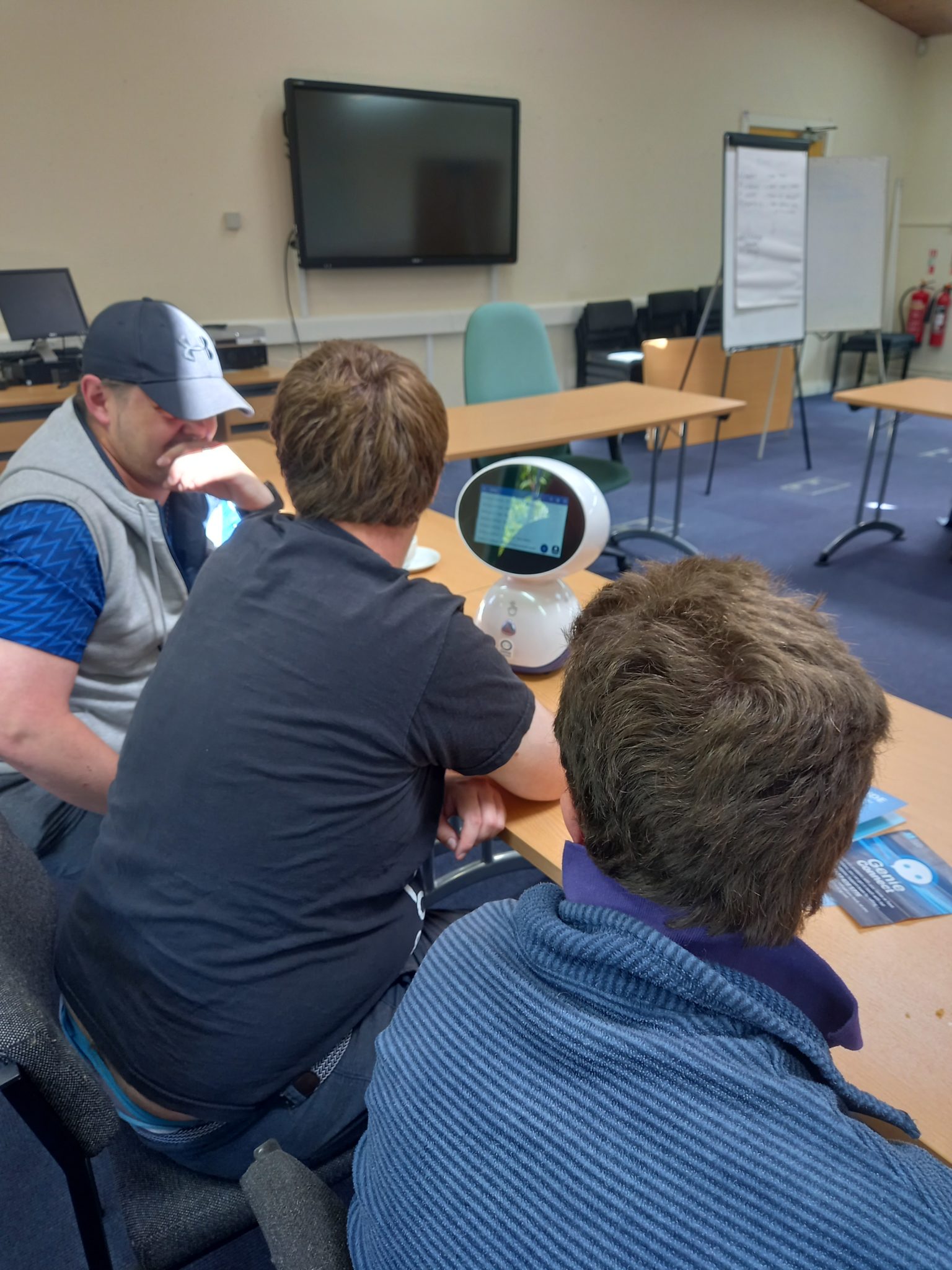Can a Robot Be a Companion for An Adult with a Learning Disability?
Whether they increase safety, improve accuracy, or enable communication, the robotics industry is advancing rapidly. Cartrefi Cymru Cooperative Ltd reports on their plans to find out.
Social care providers around the UK seek new solutions to manage care demands and improve independent living. The two have been a tough battle until the development of technology and robotics. Life’s daily challenges can be complex enough as people seek to improve their independence safely. Confronting these challenges becomes more complicated when family and care providers aren’t around to help with daily tasks or provide companionship. Cartrefi Cymru Cooperative enables individuals to live meaningful lives in the community, supporting people with learning disabilities or autism to live as tenants in their own homes.

Speaking with Geraint Jenkins, Director of Operations at Cartrefi, he told us,
The pandemic highlighted we needed to invest in our digital technology to stay connected with loved ones. We are constantly looking for new and accessible ways to keep the people we support, us as a support provider, and friends and family connected.

The prospect for robotics in caregiving is growing in acceptance, and although there are doubts about whether robots can perform tasks safely and effectively, robotics in social care is on the rise. The care requirements globally have created new opportunities for robot-centric companies to push for increased awareness and use of assistive robots.
“A robot doesn’t replace human care,” a support worker says. “But it does free up my time to provide meaningful care.”
The future of robotics in our daily lives is here and now. As Alexa has demonstrated, designed for a purpose, robotics or any other assistive technology can provide practicality in the home. However, technological advances such as machine learning, artificial intelligence, facial recognition, and the one-stop shop for all needs are not readily available to the masses. Instead, unique services are available for different use cases. As no two needs are the same, we must embrace the variations technology seeks to solve.
Genie offered an accessible and smart solution for maintaining connections. In particular, we liked their management portal and focused on improving the Smart Assistant space for people with impaired or difficult to understand speech.
Unfortunately for the futuristic-ready adults, a robot that puts away the dishes or adds your laundry to the washing machine is not yet available. Equally, a robot to provide meaningful care, such as conversations or sharing stories from the past, is not ready. We need a combination of robotics and humans to provide complete companionship.
Tim Morgan, COO at Service Robotics Ltd
“Amazon seeking robotic solutions shows this product category is worth investing in. However, mass-market solutions have limitations, making the product category exciting as more purposeful innovation is required”
In 2017, Service Robotics Ltd introduced GenieConnect to older adults requiring remote care for some care needs. Since 2021, the evolution of the service has extended to adults with learning disabilities to enable greater independence, safety and choice.
A user of GenieConnect told us,
“Before [I had Genie], I knew that I needed to take my medication, but I would usually wait for my support worker to come, and I would miss medications on the days she wasn’t there. Missing medications made me poorly. When I hadn’t taken it, I had the shakes – it’s critical I take it every day.”
CEO and Co-founder Rob Parkes said Service Robotics Ltd learned that “Genie is a tool to aid true independent living whilst mindful of their safety”. A support worker using GenieConnect said,
“as the kitchen was tidy when I arrived, it gave me more time for the most important things Adam needs help with.”
The relationship between a user, support worker and their Genie robot is fascinating and goes beyond what the expectations of a robot could provide for an adult with learning disabilities.”
Cartrefi aims to give the people we support more opportunities to use smart assistants in their homes, to stay connected, gain more independence and ultimately decrease dependency on paid support.
